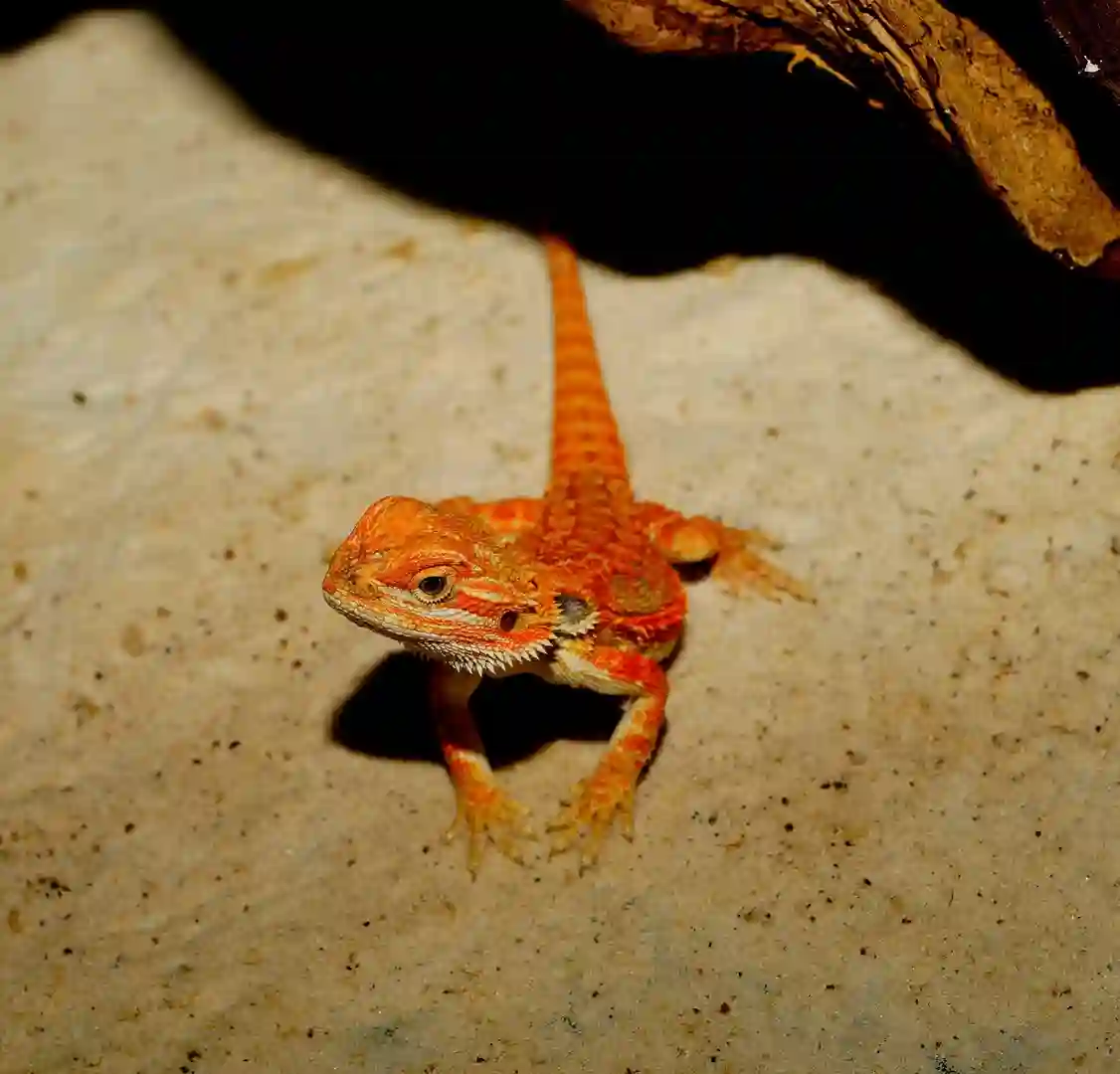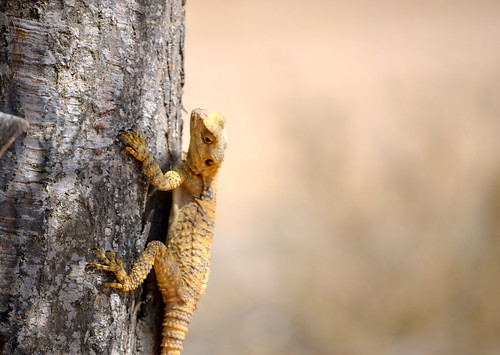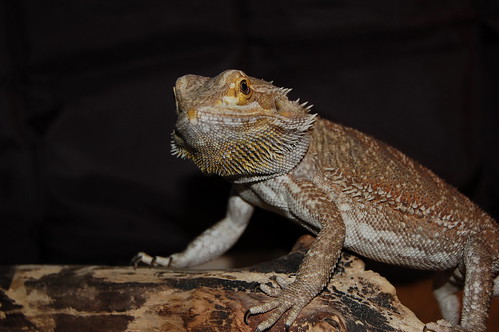Bearded dragons can eat baby food, but it is not recommended to be a part of their regular diet. Baby food is often high in sugar and may contain additives that can harm bearded dragons.
However, baby food can be used as a treat or to coax bearded dragons into eating vegetables or greens.
If you do use baby food, it is recommended to use organic baby food made from a staple that your dragon can have every day, such as butternut squash, pumpkin, or sweet potato.
It is important to avoid any baby foods that have added sugar or surprise ingredients that might not be good for your dragon.
Baby food can be used as a nutritional smoothie for your dragon, blended with a few staple greens and syringe-fed, or as a salad topper to entice your pet to eat their salad.
Nutritional Benefits Of Baby Food For Bearded Dragons
Baby food is not recommended as a regular source of nutrition for bearded dragons.
However, it can be useful as a supplement or a way to boost their nutrient intake in certain situations, such as when they are sick or refusing to eat their regular food.
If you do decide to feed your bearded dragon baby food, it is important to choose the right kind and use it in moderation.
Some types of baby food, such as those made from butternut squash, pumpkin, or sweet potato, can be used as a base for a nutritional smoothie when blended with other staple greens and supplements.
However, it is important to avoid baby foods that contain added sugar or other additives that could be harmful to your pet.
In general, it is recommended to feed bearded dragons a well-balanced diet of fresh, natural, and organically sourced greens, vegetables, and fruits, along with a good supplement of calcium, vitamin D3, and multivitamins.
Are There Any Risks Associated With Feeding Baby Food To Bearded Dragons?
Yes, there are risks associated with feeding baby food to bearded dragons. Baby food is not recommended for bearded dragons as it is often high in sugar and may have other additives that can harm them.
Although baby food can be useful when a dragon needs a nutrient boost, for instance, if they are sick and refusing food, it should only be given on an occasional basis and mixed with acceptable foods to ensure that the dragon still gets the essential nutrients they need.
Baby food should never be part of a bearded dragon’s regular diet as it may lead to health problems such as obesity in the long run.
Therefore, it is important to be careful when it comes to feeding baby food to bearded dragons and to always check the ingredients for any surprise additions that you didn’t know were in there to ensure there is nothing added that you shouldn’t feed your dragon.
How Often Should Baby Food Be Offered To Bearded Dragons?
Bearded dragons can benefit from the occasional consumption of baby food. It is important to understand the types of baby food that are available and safe for bearded dragon consumption; many store-bought brands contain additives or preservatives that can be harmful. Likewise, homemade baby food should also be prepared with safety in mind.
When considering how often to offer baby food to a bearded dragon, it is important to think about quantity, variety, and preparation. Baby food should be offered in small quantities as an occasional treat, not as a replacement for their regular diet.
Additionally, ensuring that they have access to a variety of foods helps maintain dietary balance and keep them healthy.
Finally, when preparing baby food for a bearded dragon it is essential to ensure that all ingredients are cooked thoroughly, because undercooked meats or vegetables may contain bacteria or parasites that can sicken the animal.
How To Feed Them Baby Food?
To feed baby food to bearded dragons, here are some guidelines to follow:
- Choose the right baby food: Use baby food made from a staple that your bearded dragon already eats, such as butternut squash, pumpkin, or sweet potato. Avoid baby foods that are not organic or have added sugar.
- Make your own baby food: If you prefer, you can make your own “baby food” by using a blender to mash leafy greens and other vegetables. You can add a small amount of apple for taste, but be mindful of the sugar content.
- Use baby food as a supplement: Baby food can be used as a supplement when your bearded dragon needs a nutrient boost or is refusing regular food. It can be blended with staple greens and syringe-fed to your dragon.
- Limit the use of baby food: Baby food should not be a regular part of your bearded dragon’s diet. It is not a natural part of their diet, and it is more expensive and less nutritious compared to whole, natural food. Use it only when necessary or recommended by a veterinarian.
- Feed a balanced diet: Bearded dragons require a balanced diet of fresh greens, vegetables, and live feeder insects. Baby food should not replace these essential components of their diet.
Remember, it’s always best to consult with a reptile veterinarian for specific dietary recommendations for your bearded dragon.
How To Store Baby Food Properly For Your Beardie?
When it comes to storing baby food for your bearded dragon, it’s important to keep in mind that baby food should not be the main source of nutrition for your beardie.
Baby food can be used as a supplement or a high-caloric slurry if your bearded dragon is sick or lethargic and refusing food. Here are some tips for storing baby food properly for your beardie:
- Choose the right baby food: If you decide to feed your beardie baby food, opt for varieties that are based on the food that your bearded dragon would normally eat, such as squash or pumpkin. Avoid baby foods made from fruit, as they tend to have a higher sugar content.
- Check the label: Read the label carefully and check the sugar content of the baby food. Choose organic or natural options that are free from preservatives and additives.
- Avoid cooked and processed foods: Baby food is cooked and processed, which may not provide the necessary vitamins and minerals that your beardie needs. Fresh veggies and protein are essential for their diet.
- Consult a reptile vet: If you have a malnourished or sick dragon, it’s best to consult a knowledgeable reptile vet before using baby food as a supplement.
- Store properly: Follow the storage instructions on the baby food packaging. Most baby foods can be stored in a cool, dry place before opening. Once opened, refrigerate the remaining baby food and use it within a few days.
Remember, baby food should not replace a balanced diet of fresh veggies and protein for your bearded dragon. It’s always best to consult with a reptile vet for specific dietary recommendations for your pet.



